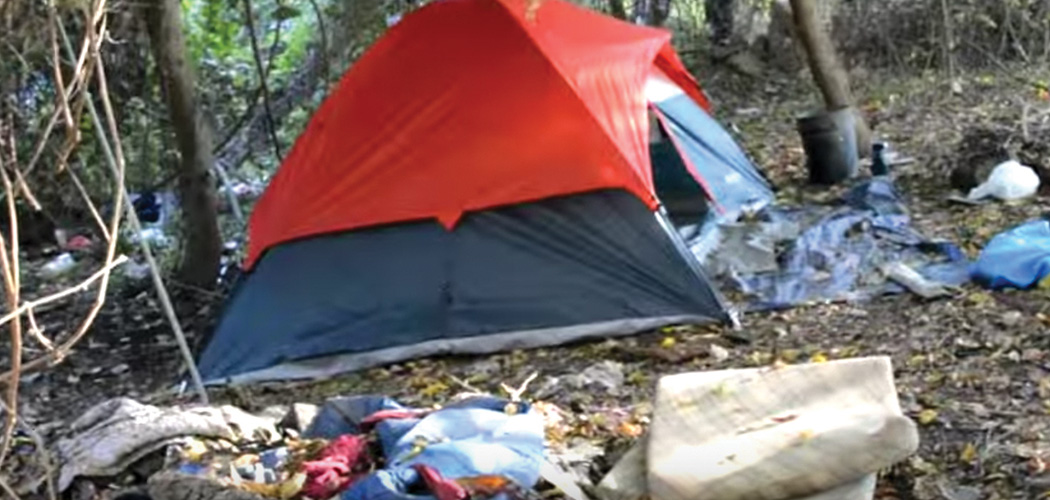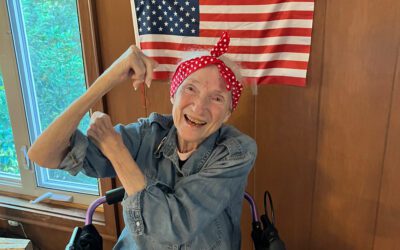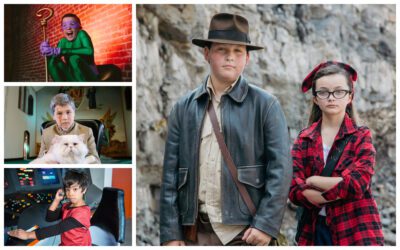[title subtitle=”words and images: Payton Allen”][/title]
I was scrolling through Instagram while I waited for my next class at UAFS when I saw a picture of three girls in cut-off jean shorts, flannels tied around their waists. Each had one hip jutting out, and they were holding cardboard signs that read, “Will Twerk 4 Skolarship,” “Strugglin’,” “No fuud, mo $$$, Tank you,” It was a sorority social event in another area and it had a theme: homelessness.
I was astounded that homelessness would be mocked and ridiculed. I began researching homelessness in Fort Smith, Arkansas, the same day. I contacted every local food bank, shelter, day room, and police officers who had worked with the homeless community. After two interviews and signing a ride-along form, I was in the backseat of an unmarked police car, camera in hand. I traveled with Officer Smith and Officer Boyd every Wednesday for an entire semester. I was determined to meet people and tell their stories.
In and Around The Mission
Paul introduces me to his group of friends as his new girlfriend. He smokes the red pack of Pall Malls, and we talk about his former addictions to methamphetamine and alcohol. “Still a fan of pot,” he says. “Won’t be sad when it gets legalized, here any day now,” he says. He has a red beard that runs down his neck in short stubbles. His eyes are wild but beautiful. He walks with a cane, due to a recent surgery gone wrong. His coat is worn, but today he isn’t too cold. He isn’t too hungry because he’s at the mission. He is, however, homeless.
He is the first one to make me cry. His story. His love reminds me of my own father’s love. He tells me of his daughter, working full time and competing for a spot in the nursing program at the University. She rode in the passenger seat of many drug deals. She grew up with a strung-out father. But she is strong, and her strength is why he lives today. She sounds like a woman I would love to meet one day.
Ms. Kitt walks by excited about her new job at the chicken plant. I’m excited for her. She is a beautiful black woman with short, copper blonde hair. We make a plan to meet on the following Wednesday, the day before Thanksgiving. I wonder what she’s going to do for the holidays.
I meet a young couple who seem happy to have each other. The man tells me that he went to medical school. The woman says she ran away from home. He says, “Don’t ever think you’re better than anyone else. Because it could happen to anyone, bro. It happens.” She says to me, “Don’t run away from home. Thank God for your family.” I leave feeling humbled and blessed.
At the corner of a supermarket parking lot, I meet a man who calls himself “Happy.” Whether he’s a veteran or not is still a mystery—but it’s what his cardboard sign reads, alongside a few peace signs. He tells me chocolate and deep fried candy bars are toxic to the soul. We disagree on that. He tells me that my soul is good. My heart is good and what I’m doing is good. He hands me a handful of crystals that he’d harvested from deep inside the Arkansas Ozark Mountains.
In The Woods near the Arkansas River
With boots laced and long sleeves on I begin my trek through the deep woods. Mosquitos sing in my ear. I knock on a tent flap and ask if anyone is “home.” I am in South Camp, the Wild West of the Fort Smith homeless community. The only thing I’m scared of is finding a body, which I’m told happens sometimes. I am welcomed warmly. Some tell me their names, some don’t, and that’s okay.
The man in this first tent is from Seattle. He says he once owned a Porsche. I ask him if there’s anything I should know about being homeless. He shrugs, frustrated maybe, emotion welling and says, “I don’t know. It’s kinda hard.”
Another man goes by the name of “Eagle.” He wears a leather hat like Indiana Jones. Turquoise and some sort of tooth hang as a necklace around his leathery neck. He mumbles when he speaks but his voice is kind. “Young people have a choice,” he says. “Sometimes stress is okay. Have some stability in your mind.” He seems surprised when I extend my hand to shake his. He takes my outstretched hand. His is worn and warm. And somehow I think his hands have been as kind as his voice is. He says goodbye and tells me, “God bless you.”
A couple look over their shoulders at me, walking along the train tracks. They don’t stop. And I do not chase them.
Wanda has a raspy voice from years of smoking. She wears her hair shaved but has left a small tuft and she constantly twists it between her slender, dirt-caked fingers. She’s often drunk, she says, but stays out of trouble. She tells me her mother, “was as I am,” perhaps hinting at her mental health. Wanda’s been here for seven years. She wears the name “Elliot” tattooed on her chest. The ink is faded and blue-green. I wonder who Elliot is, or was.
I walk up on a man listening to Garth Brooks off a TracFone from Walmart. “Family” is tattooed on his neck. He says, “Tell the young ones to stay away from the drugs. And the drinking. I’m checking myself into rehab soon. All of it is killing me.”
I make my way up the hill into the area called Independent Camp, which sits in a ravine. This is home to Allison, a woman with glasses that slip every time she talks, and she talks a lot so she is constantly pushing them back up on her thin nose. It’s also home to Crazy Money, who has that very name tattooed on his left arm. He laughs and says, “Now they just call me Crazy because I don’t have any money.” He holds his arms stretched out wide and says, “This is home. We watch a lot of the Nature Channel,” as he points to the squirrels in a nearby tree.
A young man named John Boy has been in this homeless camp since he was a child. His teeth are uneven and yellow. I’m told he’s mean. He doesn’t talk, and when he looks at me, he narrows his eyes, and I feel as if I have overstayed my welcome.
I spent a month, on and off, trekking through the woods, meeting those oppressed by hunger, cold, mosquitos, and joblessness. I made a few friends whose names I won’t forget. I know their dogs’ names. I know their plans for the future. I know that they are often hungry and don’t know when their next shower will be, or where they will sleep for the night.
I’ve learned how homelessness is about struggle and heartache. It’s sometimes about mental disorders and sometimes just bad luck. Homelessness doesn’t make a person illiterate. Homelessness sometimes comes with college degrees and families left behind.
I wanted to tell their stories, to offer insight into what life is like for them. I hope I did them justice.
What you can do to help:
Call the numbers listed below to donate or to see if there’s a particular need at the moment, such as canned food items, bedding, or warm clothing. Monetary donations are always welcome since the charities can use the money immediately to fill the most pressing needs for those they serve.
The Next Step Day Room: 479.782.5333
Community Rescue Mission: 479.782.1443
River View Hope Campus: 479.782.4991
Children’s Emergency Shelter: 479.783.0018




